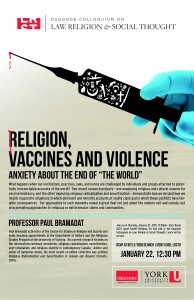 January 22, 2015
January 22, 2015
“Religion, Vaccines, and Violence: Anxiety about the End of ‘The World'” Prof. Paul Bramadat (University of Victoria)
12:30pm to 2:00pm, Room 2027, Osgoode Hall Law School
RSVP Required: www.bit.ly/osresearch, Event Code: LRST9
What happens when our institutions, practices, laws, and norms are challenged by individuals and groups attached to potentially irreconcilable accounts of the world? Two recent research projects – one examining religious and cultural reasons for vaccine hesitancy, and the other exploring religious radicalization and securitization – demonstrate how we do — and how we might — respond to situations in which dominant and minority accounts of reality clash and in which these conflicts have tangible consequences. Our approaches to such moments reveal a great deal not just about the modern self and society, but also prevailing approaches to religious or extra-secular claims and communities.
Paul Bramadat is Director of the Centre for Studies in Religion and Society and holds teaching appointments in the Department of History and the Religious Studies Program at the University of Victoria. His current research focuses on the intersections between secularism, religious radicalization, securitization, post-colonialism, and religious identity in contemporary Canada. Author and editor of numerous books, his most recent co-edited collection was entitled Religious Radicalization and Securitization in Canada and Beyond (Toronto, 2014).

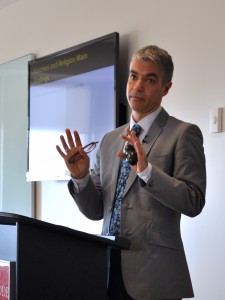
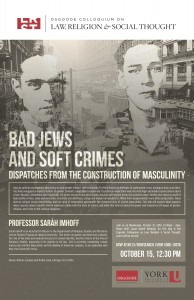
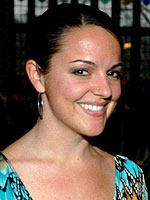
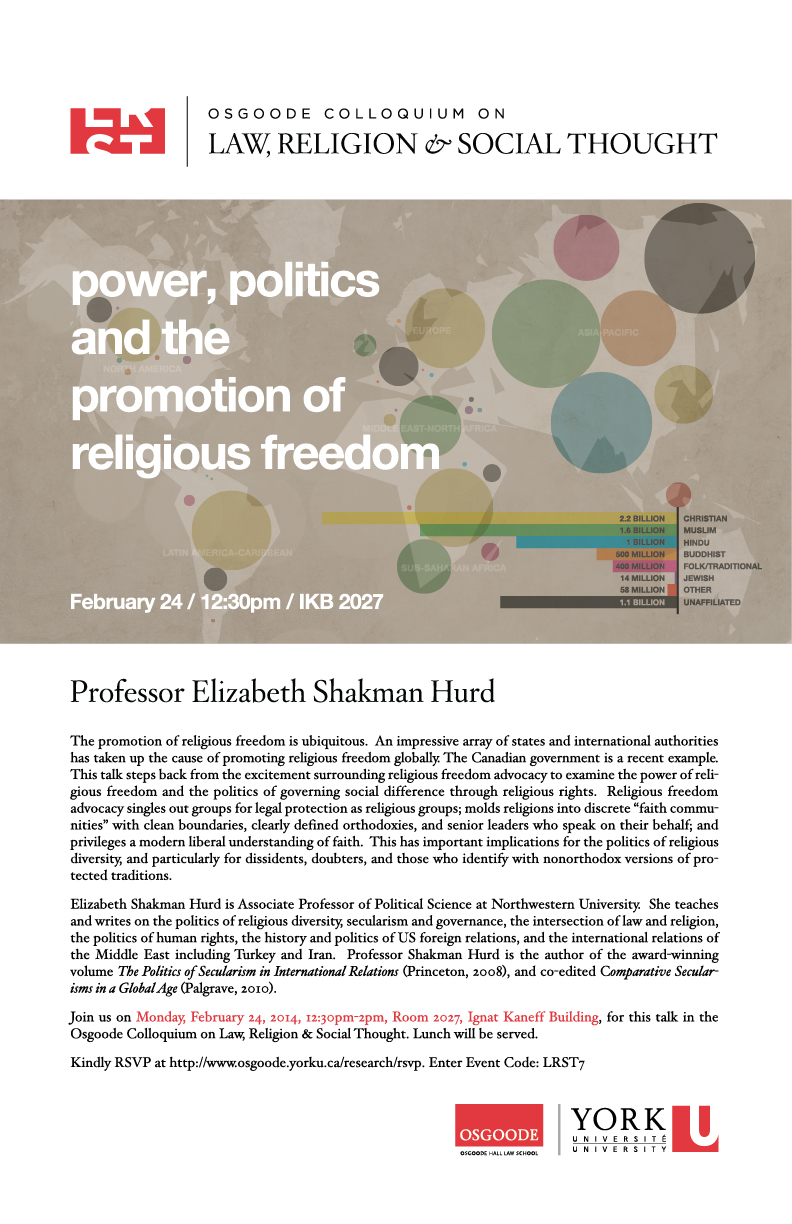
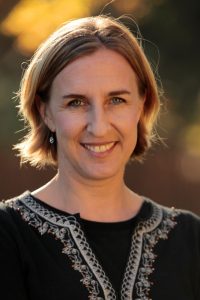
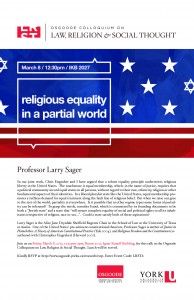
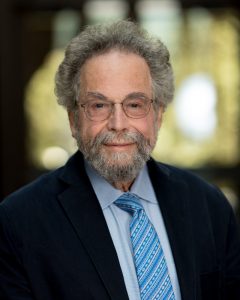 Larry Sager is the Alice Jane Drysdale Sheffield Regents Chair in the School of Law at the University of Texas at Austin. One of the United States’ pre-eminent constitutional theorists, Professor Sager is author of Justice in Plainclothes: a Theory of American Constitutional Practice (Yale 2004), and Religious Freedom and the Constitution (co-authored with Christopher Eisgruber) (Harvard 2007).
Larry Sager is the Alice Jane Drysdale Sheffield Regents Chair in the School of Law at the University of Texas at Austin. One of the United States’ pre-eminent constitutional theorists, Professor Sager is author of Justice in Plainclothes: a Theory of American Constitutional Practice (Yale 2004), and Religious Freedom and the Constitution (co-authored with Christopher Eisgruber) (Harvard 2007).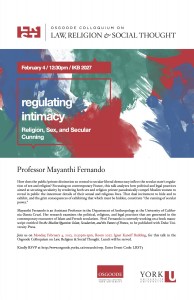
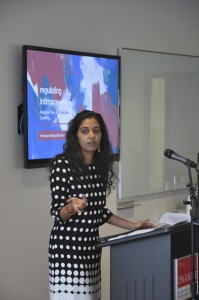 How does the public/private distinction so central to secular-liberal democracy inflect the secular state’s regulation of sex and religion? Focussing on contemporary France, this talk analyzes how political and legal practices aimed at securing secularity by rendering both sex and religion private paradoxically compel Muslim women to reveal in public the innermost details of their sexual and religious lives. That dual incitement to hide and to exhibit, and the grim consequences of exhibiting that which must be hidden, constitute “the cunning of secular power.”
How does the public/private distinction so central to secular-liberal democracy inflect the secular state’s regulation of sex and religion? Focussing on contemporary France, this talk analyzes how political and legal practices aimed at securing secularity by rendering both sex and religion private paradoxically compel Muslim women to reveal in public the innermost details of their sexual and religious lives. That dual incitement to hide and to exhibit, and the grim consequences of exhibiting that which must be hidden, constitute “the cunning of secular power.”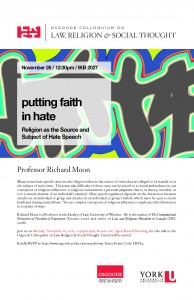

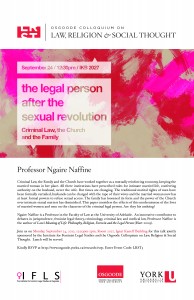
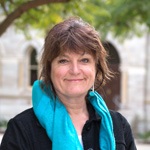
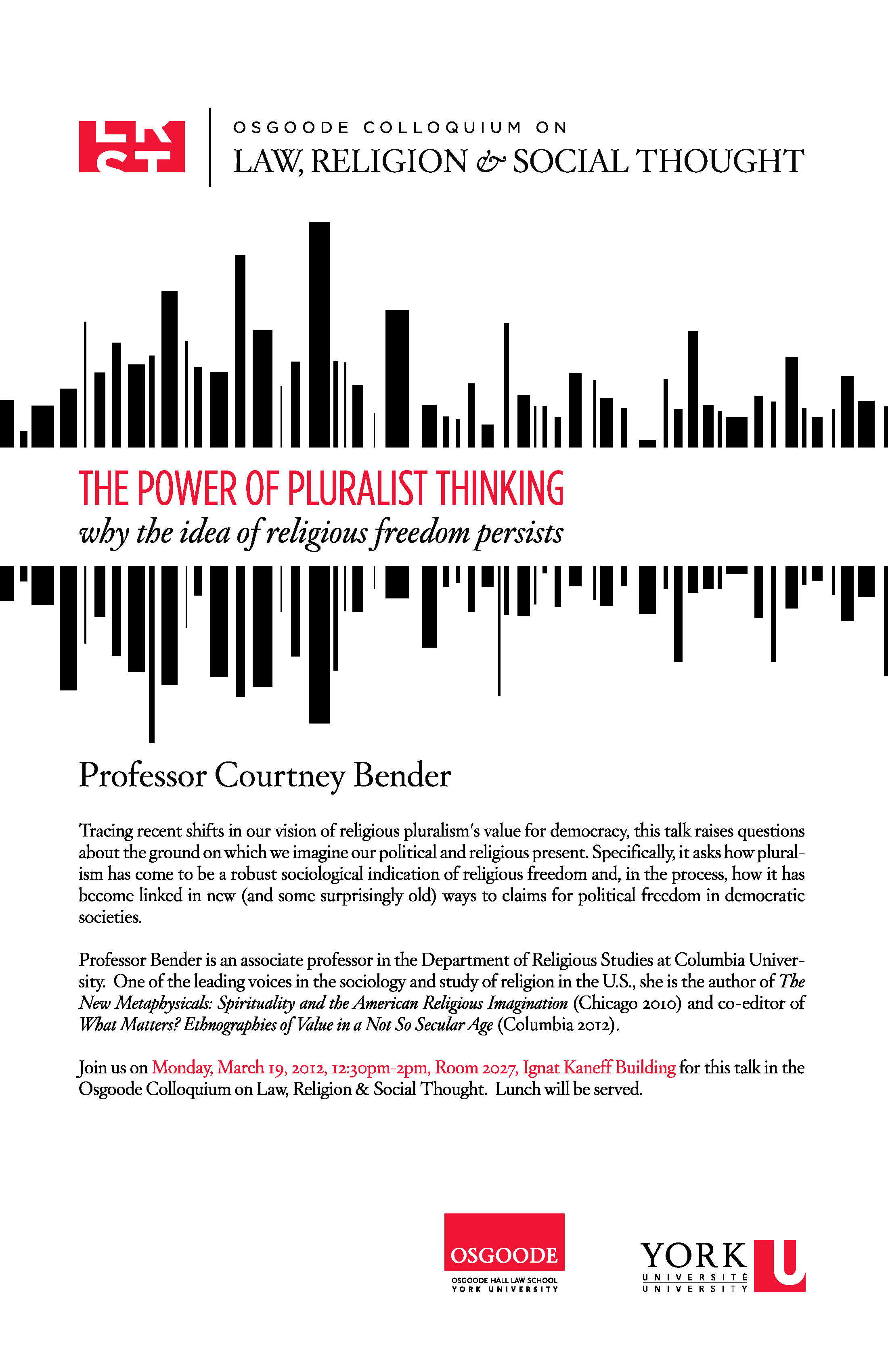
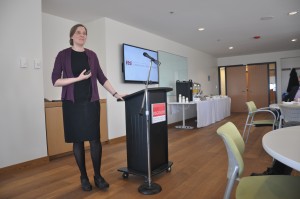
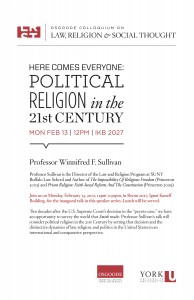
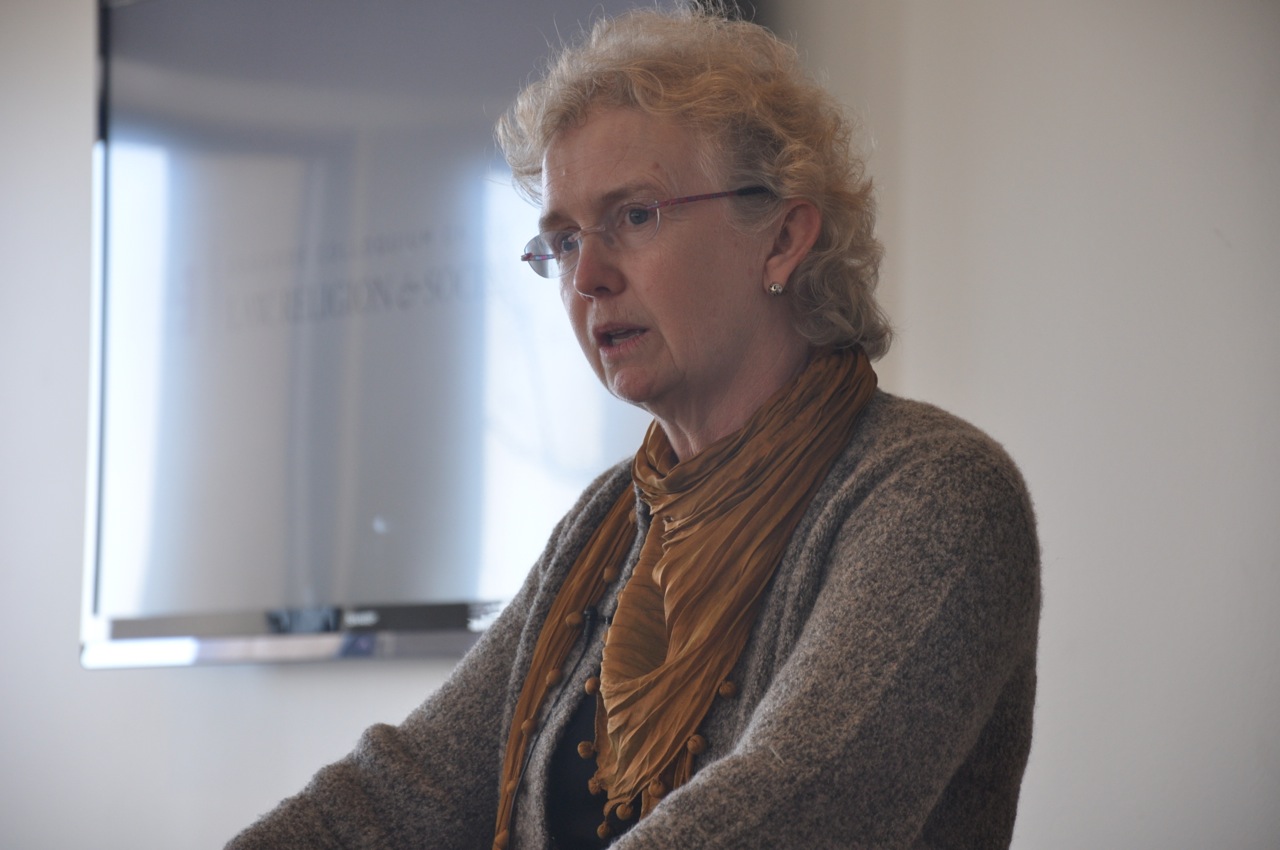 Winnifred Sullivan is the Director of the Law and Religion Program at SUNY Buffalo Law School and Author of The Impossibility Of Religious Freedom (Princeton 2005) and Prison Religion: Faith-based Reform And The Constitution (Princeton 2009).
Winnifred Sullivan is the Director of the Law and Religion Program at SUNY Buffalo Law School and Author of The Impossibility Of Religious Freedom (Princeton 2005) and Prison Religion: Faith-based Reform And The Constitution (Princeton 2009).